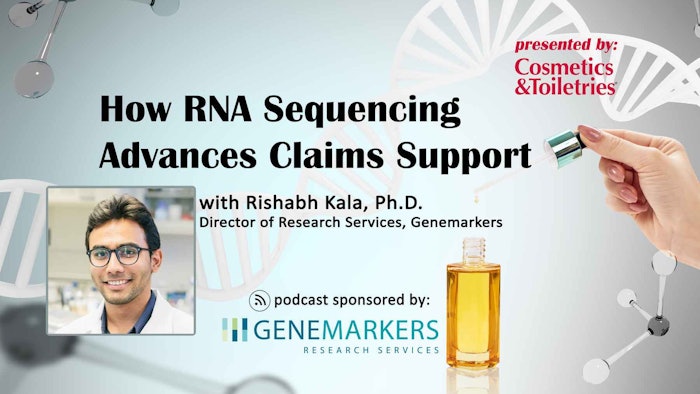
This podcast is sponsored by: Genemarkers, LLC
"Unlike DNA sequencing, ... RNA sequencing is a newer form of sequencing that's more dynamic," explains Rishabh Kala, Ph.D., director of research services for Genemarkers. "It tells us more about the current status of a cell. With DNA sequencing, once you sequence a DNA, it remains mostly the same throughout your lifetime, whereas RNA is something that keeps changing depending on your lifestyle, the products you are using, etc. — that's why it's more dynamic."
According to Kala, with the advancement of high-throughput sequencing, this field has advanced rapidly. "[The approach is] based on sequence biosynthesis," he adds. "It is a very fast and parallel sequencing where we can sequence multiple segments of a genome all together."
An added benefit, per Kala, is that RNA sequencing does not require pre-determined targets. Instead, as he explains it, "You're on an investigation mode without knowing what you are looking for; you just want to see what general changes are happening. Basically, it helps skin biologists identify mechanisms of action."
Learn more about RNA sequencing and how it benefits claims support in this exclusive podcast, sponsored by Genemarkers. Listen now; it's free.










